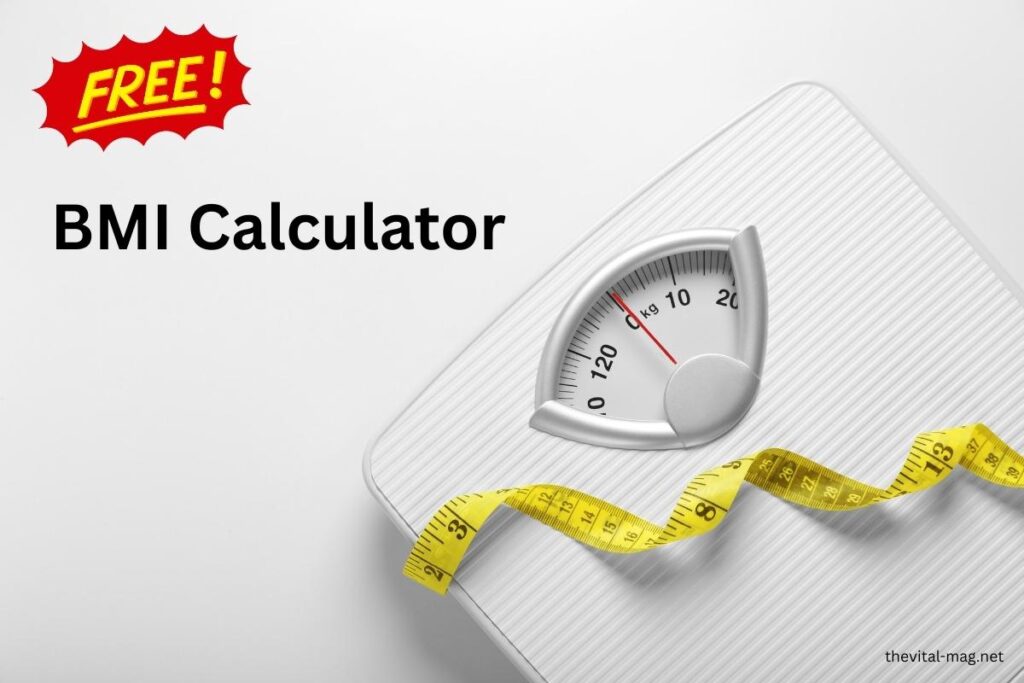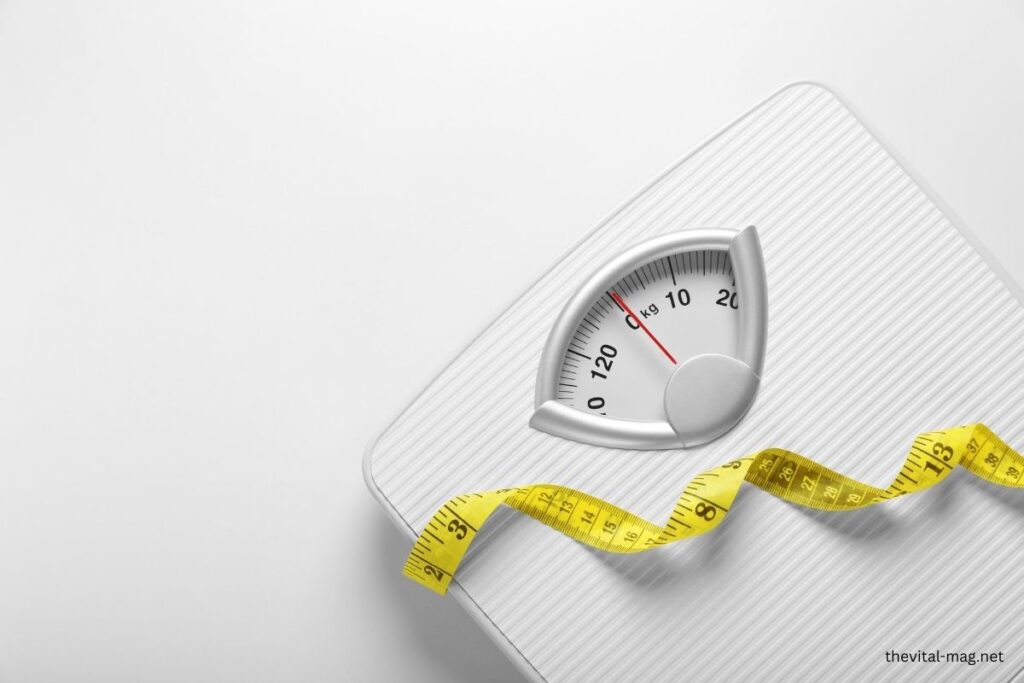1. Introduction
Have you ever wondered if you’re at a healthy weight for your height? That’s exactly what a BMI calculator helps you figure out.
BMI, or Body Mass Index, is a simple measurement that estimates whether your weight falls within a healthy range. It works by comparing your height and weight, providing a number that corresponds to different categories on the BMI scale—underweight, normal, overweight, or obese.
Using a BMI calculator can be the first step toward understanding your health status and making informed lifestyle choices. Whether you’re trying to lose weight, maintain your current size, or just curious, learning how to calculate BMI is easy and helpful.
2. BMI Calculator (Interactive Tool)
To find out your BMI, use the tool below:
👉 BMI Calculator
BMI Calculator
Input:
- Height (cm or ft/in)
- Weight (kg or lbs)
Output:
- Your BMI result
- Category: Underweight, Normal, Overweight, Obese
You can also use a basic formula to calculate BMI manually:
🧮 BMI Formula:
BMI = weight (kg) / height (m²)

3. How to Read Your BMI Result
After you calculate your BMI, you’ll fall into one of the categories in the BMI chart below:
| BMI Range | Category |
|---|---|
| Below 18.5 | Underweight |
| 18.5 – 24.9 | Normal Weight |
| 25 – 29.9 | Overweight |
| 30 and above | Obese |
These ranges apply to both men and women, but many people also search for specific data like:
- BMI calculator women: Targets female-specific fitness goals
- BMI calculator men: Useful for tracking male health metrics
- BMI chart women: Some visual charts are designed with female body types in mind
Remember: these categories offer a general guideline. Let’s explore the limitations next.
4. Limitations of BMI
While BMI is a widely used tool, it's not perfect.
⚠️ Limitations include:
- It doesn't consider muscle mass – so athletes may have a high BMI but low body fat.
- It doesn’t reflect age, sex, or bone structure.
- It ignores fat distribution – belly fat, for example, poses a higher risk than fat stored elsewhere.
💡 Better alternatives:
- Waist-to-hip ratio
- Body fat percentage
- Skinfold measurements
These methods can complement BMI for a clearer picture of your health.
5. Tips to Reach or Maintain a Healthy BMI
Whether your BMI scale result was underweight, overweight, or in the healthy range, these tips can help you move in the right direction:
🥗 Nutrition Advice:
- Eat balanced meals rich in vegetables, fruits, whole grains, and lean proteins.
- Limit sugar, trans fats, and processed foods.
- Stay hydrated and watch portion sizes.
🏃 Exercise Recommendations:
- Aim for at least 150 minutes of moderate activity (like brisk walking) per week.
- Add strength training 2–3 times a week.
- Find enjoyable ways to stay active: dancing, hiking, swimming, etc.
👨⚕️ When to Talk to a Doctor:
- If your BMI is below 18.5 or above 30
- If you have sudden weight gain or loss
- If you're unsure about your nutrition or fitness strategy
6. FAQs
❓ Is BMI accurate?
BMI is a helpful screening tool, but not a complete diagnosis. It gives you a starting point, but other factors like muscle mass, body composition, and lifestyle should be considered too.
❓ Can I trust online calculators?
Yes, most BMI calc tools online use the same universal formula. Just make sure you’re entering accurate height and weight data.
❓ How often should I check my BMI?
If you’re monitoring weight changes or following a health plan, checking your BMI every 1–3 months is reasonable. For general health, a few times a year is enough.
7. Conclusion
A BMI calculator is a fast and easy way to get a snapshot of your weight in relation to your height. Whether you're using a BMI calculator for women, men, or just looking at the general BMI chart, it’s a valuable health check-in.
While it’s not perfect, it’s a great place to start. Use the results to make positive changes, talk to a health professional if needed, and aim for balance in your daily habits.
✅ Try the BMI calculator above, see where you stand, and take one step closer to a healthier you!
FAQ OF BMI calculator
❓ 1. What is a BMI calculator?
A BMI calculator is an online tool that helps you determine your Body Mass Index based on your height and weight. It quickly shows whether you're underweight, normal, overweight, or obese according to the BMI scale.
❓ 2. How do I calculate BMI manually?
To calculate BMI, use the formula:
BMI = weight (kg) ÷ height (m²).
For example, if you weigh 70kg and are 1.75m tall, your BMI is 22.9.
❓ 3. What is a good BMI for women?
According to the BMI chart for women, a healthy BMI falls between 18.5 and 24.9. However, factors like age, muscle mass, and body composition should also be considered.
❓ 4. Is there a difference between BMI calculator for men and women?
The BMI calculator for men and the BMI calculator for women use the same formula, but interpretation might vary slightly due to differences in body composition and fat distribution.
❓ 5. What does the BMI scale mean?
The BMI scale categorizes your BMI result into ranges:
- Underweight: < 18.5
- Normal: 18.5–24.9
- Overweight: 25–29.9
- Obese: 30 or more
❓ 6. Is the BMI chart the same for men and women?
Generally, the BMI chart is the same for both genders. However, some BMI charts for women or men include additional considerations like age brackets or body fat estimates.
❓ 7. Why is BMI important?
BMI is a quick indicator of whether your weight is in a healthy range for your height. It can help identify risks for conditions like heart disease, diabetes, and obesity-related issues.
❓ 8. Is the BMI calculator accurate?
A BMI calculator gives a good general idea of your health status, but it doesn’t account for muscle mass, bone density, or fat distribution. It’s best used alongside other health assessments.
❓ 9. Can athletes trust their BMI results?
Not always. Athletes often have higher muscle mass, which can increase BMI even if they have low body fat. In such cases, BMI might classify them as overweight or obese inaccurately.
❓ 10. Where can I find a free BMI calculator online?
You can find many free BMI calculator tools online. Just enter your height and weight, and the tool will calculate your BMI instantly and categorize it based on the BMI scale.
❓ 11. How often should I check my BMI?
If you're actively managing your weight or health, check your BMI every month or two. Otherwise, checking a few times per year is usually enough for general awareness.
❓ 12. Is there a BMI calculator app?
Yes, there are many BMI calculator apps for Android and iOS that help you calculate BMI on the go, often with additional health tracking features.
❓ 13. What BMI is considered overweight for women?
According to the BMI chart for women, a BMI between 25 and 29.9 is considered overweight. Over 30 is classified as obese.
❓ 14. How can I lower my BMI?
To lower your BMI, aim to reduce your body fat through a combination of healthy eating, regular exercise, and proper hydration. Consulting a doctor or dietitian can also help.
❓ 15. Is the BMI calculator suitable for children?
Standard BMI calculators are designed for adults. For children and teens, BMI is interpreted differently using age- and gender-specific BMI charts called BMI-for-age percentiles.






